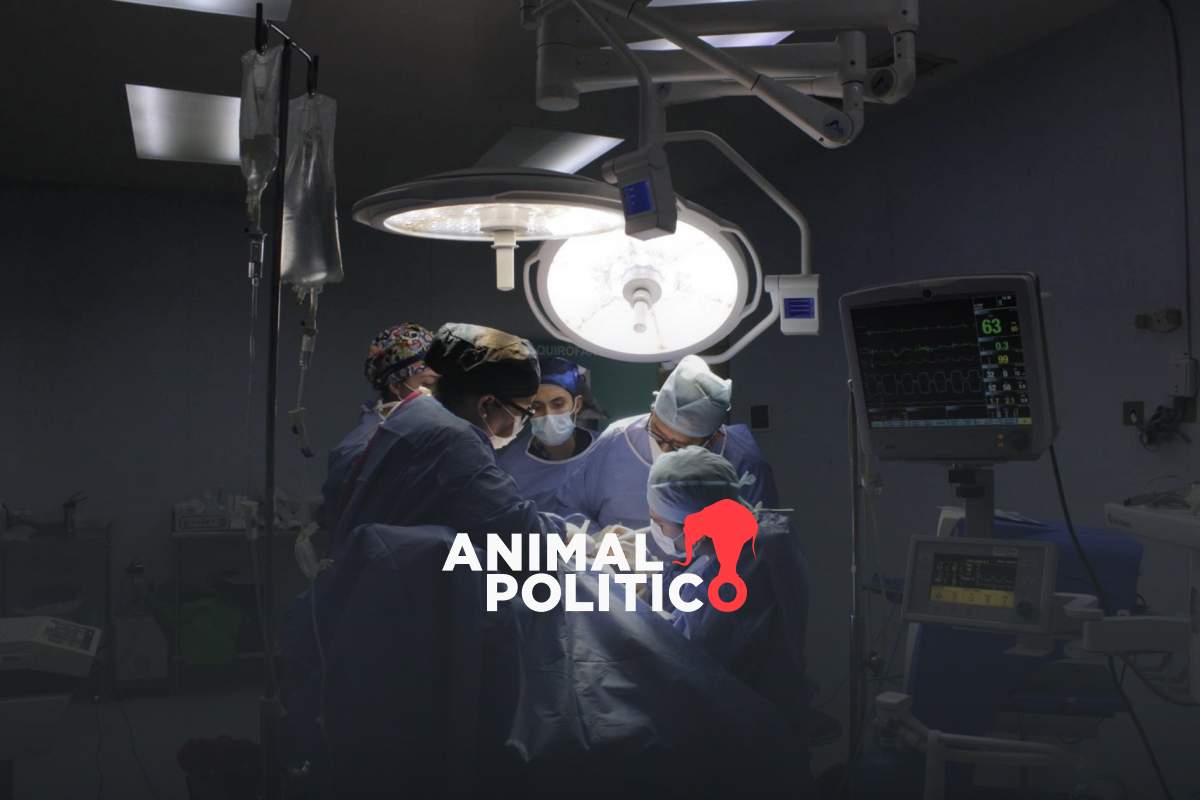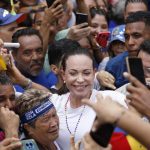
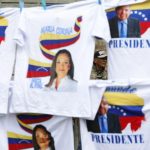
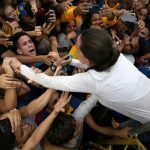
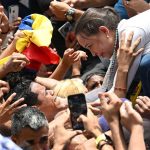
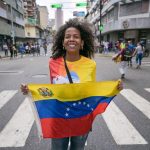
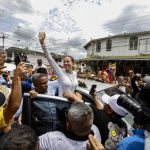
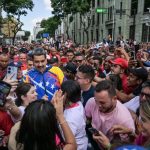
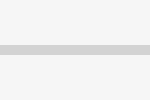
She will not be on the ballot for Venezuela’s presidential elections this July 28, but María Corina Machado continues to tour the interior of the country in search of reviving the hope of opponents after years of demobilization.
In sometimes precarious conditions and without much budget, and at a disadvantage compared to the ruling party, the candidate chosen in the opposition primaries holds rallies and campaign events in small places in the country where she brings together hundreds of supporters, actions also replicated by Chavismo. , who seeks the re-election of Nicolas Maduro.
Machado will not be able to be on the ballot as he is inabilited.
His position after a political agreement between broad sectors of the opposition, faced for years by the dispute over which path to choose to defeat the chavismooccupies it Edmundo Gonzáleza former diplomat little known among the general public who was even surprised that they had allowed him to register.
The Machado-González duo is trying to revive electoral hope in Venezuela for the opposition that had been extinguished for years.
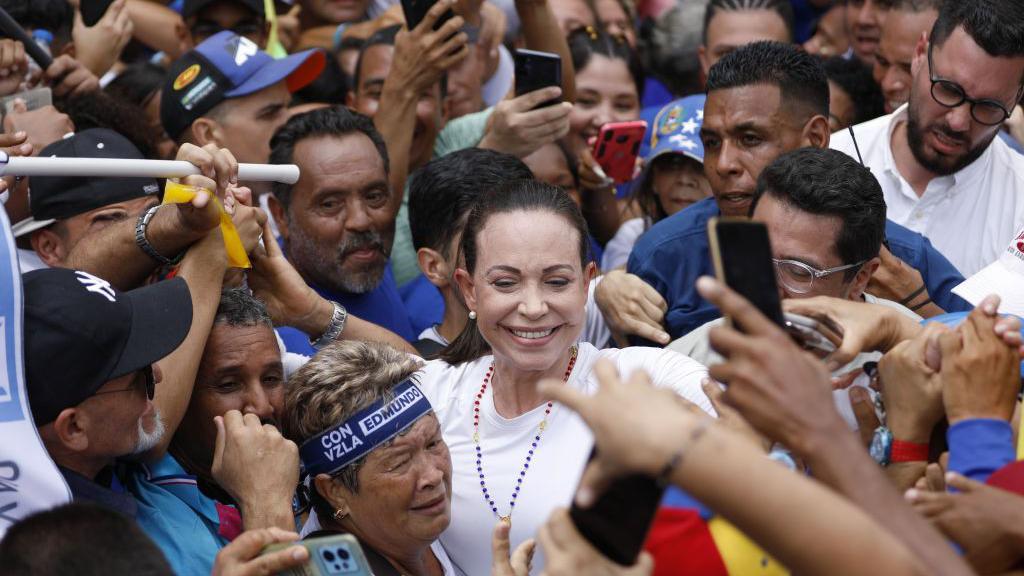
After winning the 2015 parliamentary elections, the opposition faced numerous obstacles that derailed its attempt to call a recall referendum against Maduro.
This led to a period of intense protests in the streets and a demobilization for the 2018 presidential elections, in which the majority opposition decided not to participate considering that there were no guarantees of free and fair elections due to the disqualification of parties and leaders.
All of this in the midst of an economic crisis that has lasted for years, which was aggravated by international sanctions and which caused the emigration of millions of Venezuelans.
After the elections six years ago, at least 60 governments ignored Maduro and the formation of an interim opposition government headed by Juan Guaidówhich was eventually dissolved.
Maduro resisted the pressure and remained in power. He now clings to a certain economic recovery to defend his management in the face of an opposition that he accuses of acting in coordination with the United States.
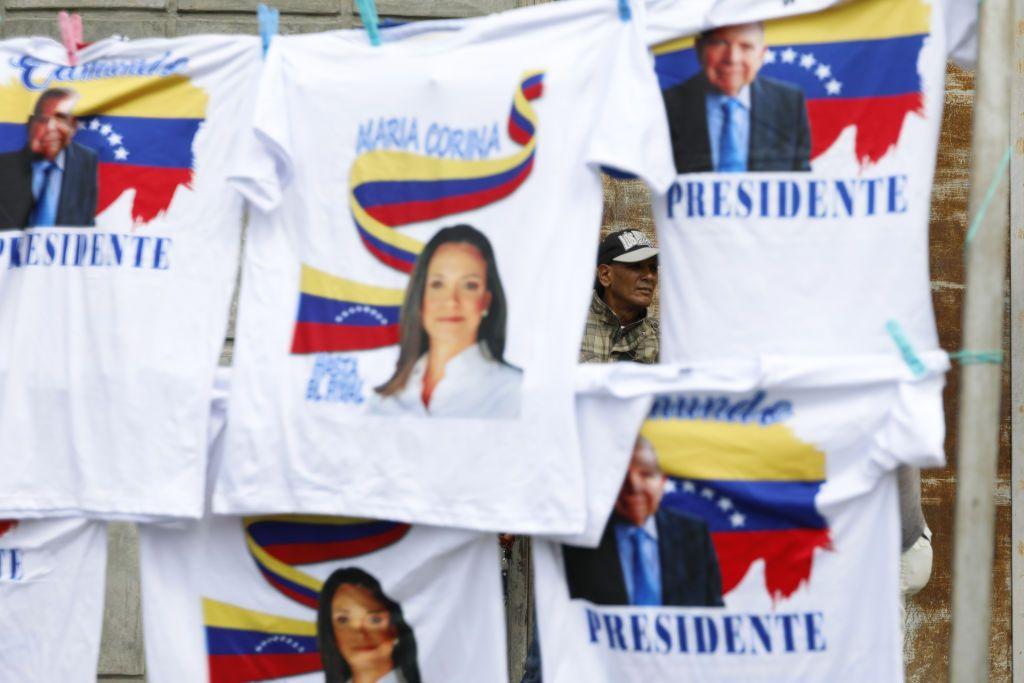
Despite the difficulties reported by the ruling party, abstention is now not an option for the opposition.
And this despite the fact that Machado, 56, cannot be on the ballot, nor can her replacement, Corina Yorisalso disabled.
For now, González continues in the race as Maduro’s great rival and hope of the majority opposition to defeat Chavismo, which has controlled the government since 1999, with Hugo Chavez first and with Maduro since 2013.
Touring the towns
A vote for González is seen by opponents as a vote for Machado, a veteran politician, harsh critic of the government and who in the past defended not supporting the electoral route.
After winning the primaries with very broad support, He has been visiting towns hit by years of crisis for months and seeking to generate enthusiasm in the people that translates into votes for González, 74 years old.
As she passes she is swallowed up by people who wait for her in every town she visits.
“You are the opportunity (…) You are the one that moves us,” shouts a follower who is among a crowd.
“For our children, for our grandchildren,” an elderly woman walks along while staring at her during a rally in San Sebastián de los Reyes, in the state of Aragua, in the center of the country.
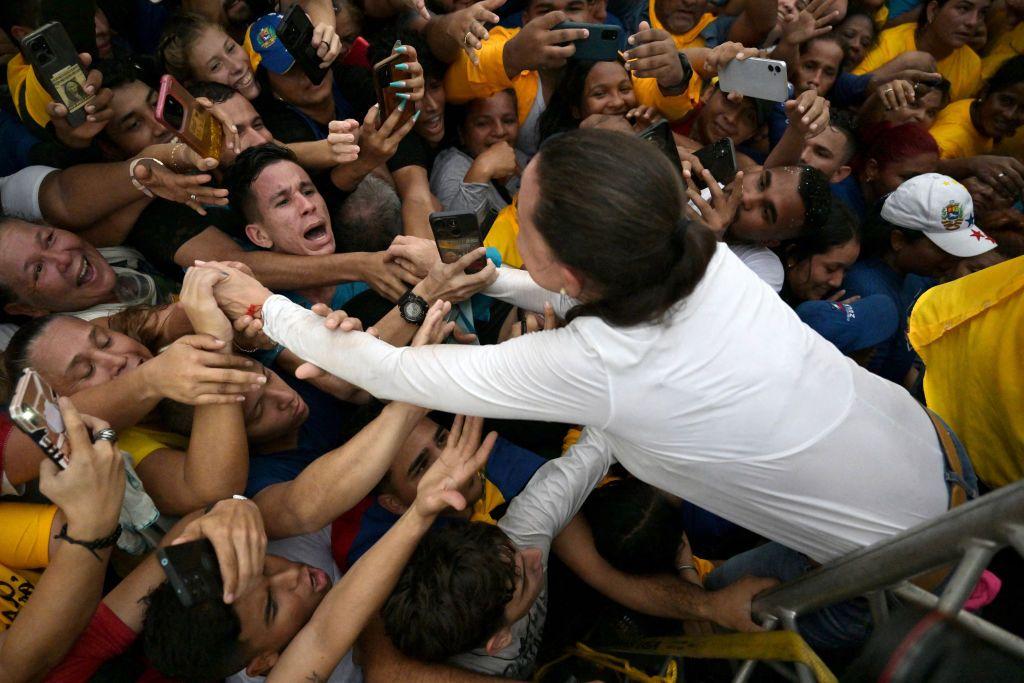
In Puerto Páez, in Apure, in the west of the country, a man cries when she sees her arrive.
Hundreds try to grab her, kiss her, hug her.
“For those of us who returned and did not find our mothers alive,” cries into the microphone a woman who attended another recent event in Puerto Ayacucho, Amazonas, in the east.
In his actions, Machado appeals to emotional rhetoric; It talks about the reunion of the family, of the migrants who left the country due to years of crisis and who hope to return if there are changes; and the hope of a future.
He asks that they vote for González to defeat Maduro, something that the opposition has not dreamed of since the 2013 elections, in which the current president won by a narrow margin against Henrique Capriles shortly after Chávez’s death that same year.
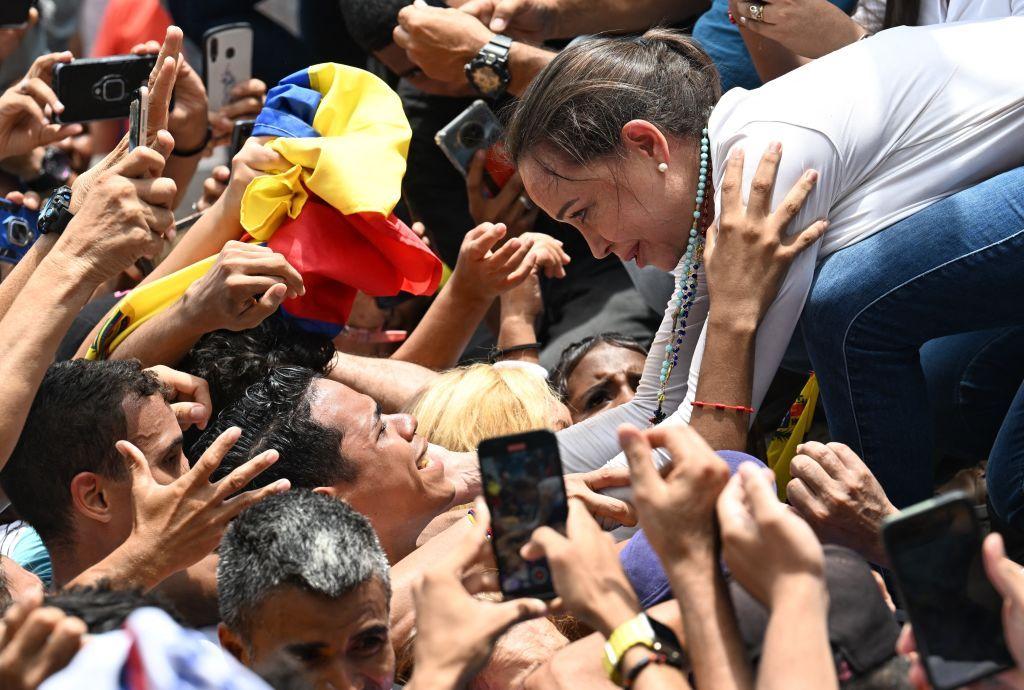
“We are going to win,” Machado shouts over and over again. It is night in San Fernando de Apure.
Cell phone flashlights are the best staging in times of austerity, without large platforms or good audio.
“People are hopeful. There is important hope throughout the country in relation to the July 28 election as a mechanism to achieve political change,” Oswaldo Ramírez, from the ORC Consultores firm, tells BBC Mundo.
The trust in Machado, transferred to González, has generated an interesting “fervor,” he insists.
The events inside Venezuela have allowed Machado to carry the message that “’it’s not about a person, it’s about a sense of opportunity, this is the opportunity to change the situation‘”, says Pablo Quintero, political consultant at the firm Log Consultancy.
Since last April, Chavismo has been tracking Machado and calling for parallel campaign events in the same state that the opponent visits, also taking advantage of a mobilization capacity honed for years with its core of faithful.
Deputy God given hairone of the leaders of Chavismo, is one of those who is attacking the most both Machado, with whom he has had a tense dispute for years, and now González.
“Now the opposition wants to sell him to us as a poor old man, but that man is a pervert. We are all going to grow old but never with the evil, the perversion, of that man who is part of a perverse plan to continue harming our people,” Cabello said recently.
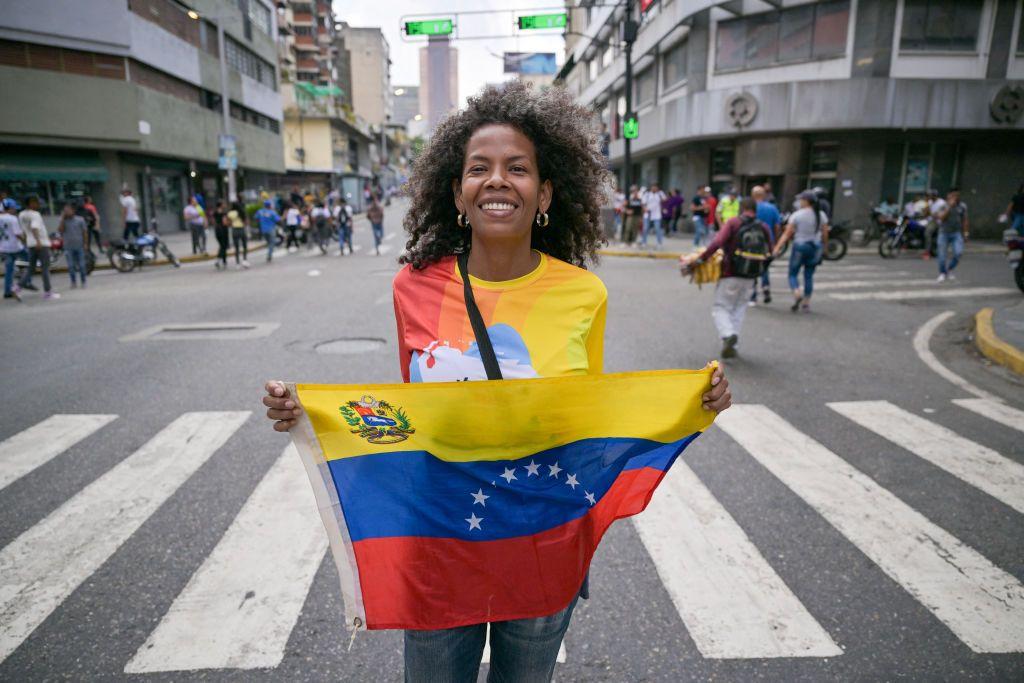
There are polls that agree that González has capitalized on a good part of Machado’s voting intention.
The most recent study by the firm ORC Consultores showed that the 50.74% of Venezuelans would vote for González, compared to 13.70% who said they would vote for Maduro.
Among the ruling party, there are surveys that say that 52.5% of Venezuelans believe that the elections will be won by the current president.
“Those 52.5 that are there we have to take them up, to 60, to grow and consolidate the advantage we have at this moment. The best survey for me and for our commander Chávez was always the people in the streets, mobilized and empowered,” said Maduro recently, who attributes the country’s problems to international sanctions and identifies the opposition with them.
Several collaborators close to Machado have been detained since January and six of them, who have arrest warrants accused of acts of conspiracy against the government, are holed up in the Argentine embassy in Caracas.
Even with everything, the analyst Quintero, who considers that the current electoral process does not have competitive conditions, warns that the great challenge that lies ahead for the opposition will be on July 28.
“It is of no use to have a high percentage in the polls, a good message and a feeling of victory, when you do not have the election machinery well oiled.”
“The opposition victory will depend on what is done on election day with the electoral witnesses, the resources allocated to the campaign and the mobilization,” says Quintero.
“It is war work, difficult,” he adds.
“What else do I have left?”
Andreina Febres, 48, who lent her truck to serve as a platform at the event, agrees with this statement. first mass act that Machado had with González in La Victoria, Araguabeginnings of May.
Two trucks had been hired to provide sound for that rally. But they did not answer the phone on the day of the activity.
Local media reported that the owners of the trucks received threats from state agencies.
Febres lives in San Mateo, a town very close to the place where the opposition binomial rally took place that day.
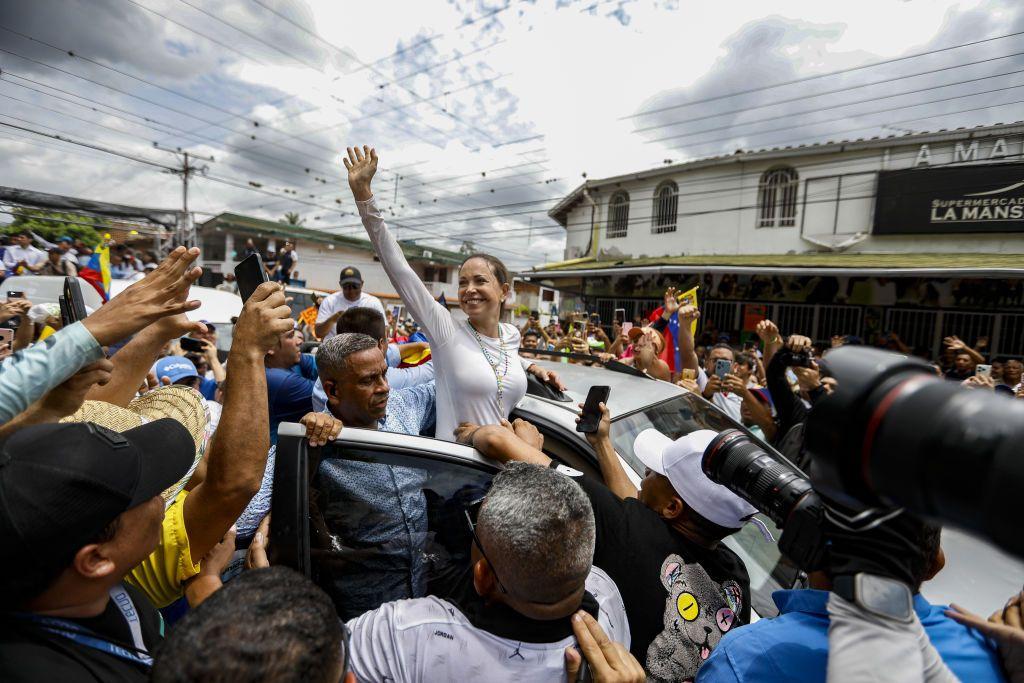
She is an agricultural engineer, but she lives by renting warehouses, driving her truck and making transfers. His family emigrated to Spain and Chile in 2021, he says.
“This truck is my savings, the effort of work, but this is the moment in the country where we have to take risks,” he says in response to the possible threat of losing the truck with which he makes a living because he lent it to a political event.
“I’m not afraid, I’ve already lost my family, I see them by video call. What else do I have left? What else do we have to see in Venezuela? It’s scary not having food, it’s scary not having to offer it to our children.. “That’s scary,” the woman tells BBC Mundo.
“The only thing people in this country want is to work with dignity and for their salary to be enough.”
The area where Febres lives, like others in the country, is constantly hit by failures in public services: water, gas and electricity.
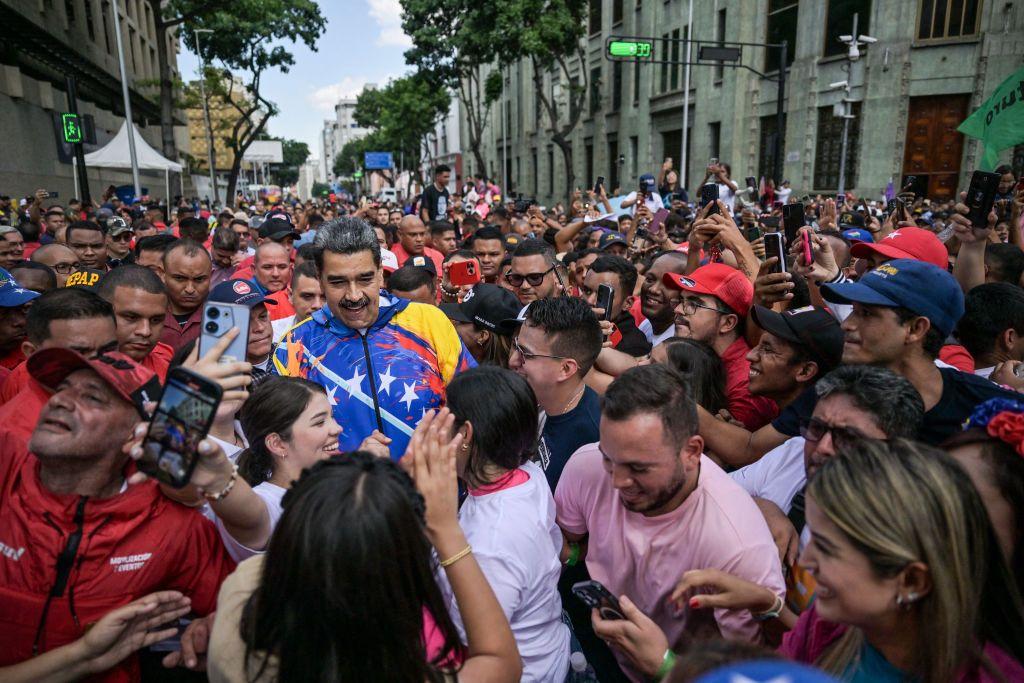
The fatigue due to the crisis is felt in every corner of this area traditionally chavista.
It is seen in the man who crosses the street to fill drums with water at a public well. In the woman who hasn’t sold anything at the hardware store for days. In the engineer who has his clothes full of grease because he fixes cars to support himself. At the lawyer he doesn’t have to pay for a taxi.
“There is a great component of calamity that affects the citizen. This situation, which has not been resolved through management by the government, has produced satiety,” says analyst Quintero.
“We have believed in carrying out electoral processes. At the time we believed that not voting was ideal, at the time we believed many things,” Febres reviews the last few years of opposition sentiment.
It is a government, he criticizes, “designed so that we lose hope.”
“But what brings me to the street is hope and faith that everything can change.”
If things don’t go the way she wants, she will leave Venezuela. She also has Spanish nationality, her exit option.

And remember that you can receive notifications in our app. Download the latest version and activate them.

